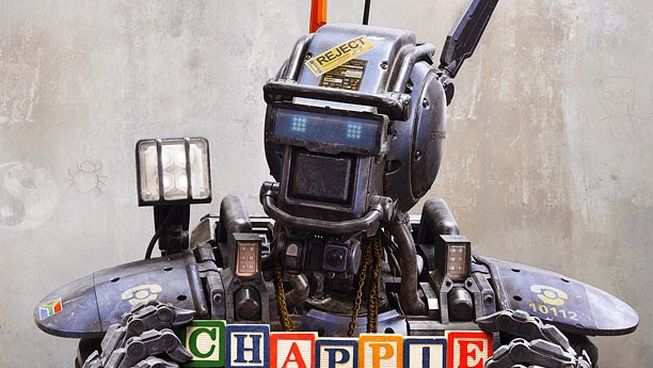
2 out of 5 stars
"I'm consciousness. I'm alive." - Chappie
Director Neil Blomkamp's vision of the future of South Africa is crime-filled, violent and people make bad hair choices. The police department in Johannesburg has managed to bring down the crime rate with the assistance of a new robotic force. During the successful development of this new level of robots, Deon Wilson (Dev Patel), the creator of this robotic army, develops a new programme that will develop a conscience in the robots. Deon is a man before his time and determines that he must hide his new creation, Chappie. In the process of hiding his unique invention, the misunderstood robot is stolen by a small-time crime trio and they manage to take advantage of his new found self-awareness, innocence and loyalty. They train Chappie for a life of crime. During his initiation process, key forces of industry, crime and law enforcement are searching for this unique robot. The goal of these forces is to exploit or destroy him. The little robot must learn quickly about the evils of the world, how to protect himself and everyone who is within his sphere of influence before his battery runs down.
Neil Blomkamp attempts to deliver an original telling of the self-aware robot. Due to his upbringing in South Africa, Blomkamp paints a picture of society this is filled with racism and segregation. His first film, District 9, gave a fresh spin on the issues of racism and introduced a central character that must grow beyond these issues through an external and internal metamorphosis. This character development in District 9 made up for the plot holes and weaker story components.
Chappie ultimately suffers from comparison to District 9 and similar robot narratives such Blade Runner, I, Robot, and Robocop. Blomkamp's story differs from other robotic tales, because Chappie becomes a gangster with a South African accent, but that is where the originality ends. Sharlto Copley (District 9) is back in a lead role of a Blomkamp film, but only as the voice of the gangster robot. His presence cannot make up for all of the other poorly chosen characters. From the unappealing trinity of gangsters who ‘raise’ Chappie to Hugh Jackman (X-men) as the mulleted villain to Sigourney Weaver as the most incompetent CEO in cinematic history. They all lack believability as either evil, humorous or endearing. If Blomkamp desired for the audience to dislike all of the human characters and the only appeal is found in the robots, he succeeded. The dialogue was difficult to follow and the story was exceptionally disjointed. The special effects do deserve special acknowledgement. The line between actual actors and the CGI players was fascinating to observe and should receive recognition. But, even with the exceptional special effects, there is not much to breathe life back into this overused storyline.
If there is any salvation for this film, it would be in the consideration of life’s bigger issues. The story opens the door to dialogue on creation, evolution, God, human nature, death and the ‘blank slate’ theory. The story was rich in opportunities to consider these topics, but it was marred with excessive violence and language. If it is possible to get past these issues, there is a treasure trove of things to discuss. Besides the creator, Deon, most of the characters in this cinematic journey do not realise the gift they had been given in Chappie. The same could be said about the audience experience. If you choose to see it, take time to consider the golden opportunities for rich discussion that this poorly executed film provides.
Leaving the cinema...
"You've taught us more than we could have ever imagined." - Deon Wilson (The creator)
At first, it was a 'seen it, done that' experience. I could list off a multitude of films that did a better job with this robotic story line. Then thinking about it, Chappie opens the door to many considerations. Don't miss out on the opportunity to stretch yourself and consider the questions that Chappie is asking.
Reel Dialogue: What are the bigger questions to consider from this film?
1. What does it mean to be human? (Genesis 1:27, 2:5-25)
2. Why are humans suspicious and violent? (Genesis 3, Matthew 15:19)
3. Can mankind create artificial conscience? Artificial Intelligence: The Christian perspective
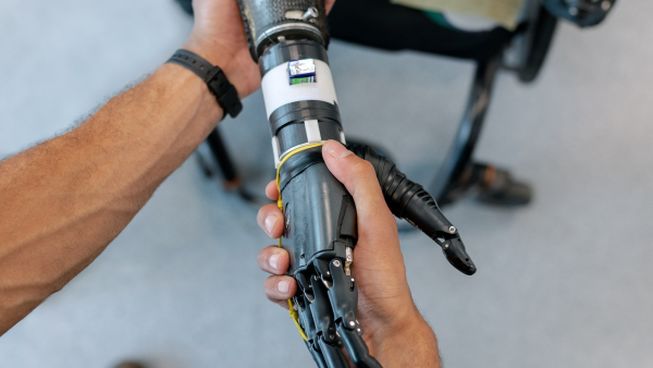
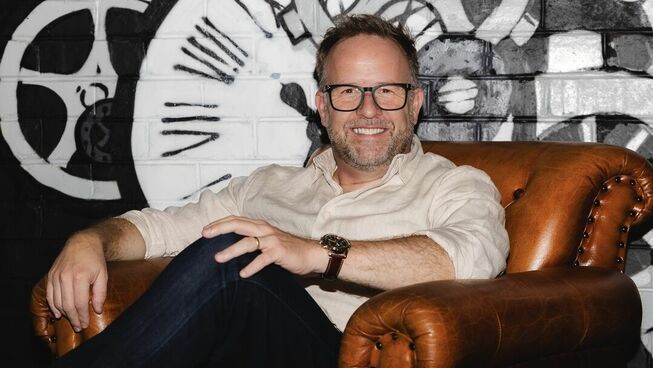
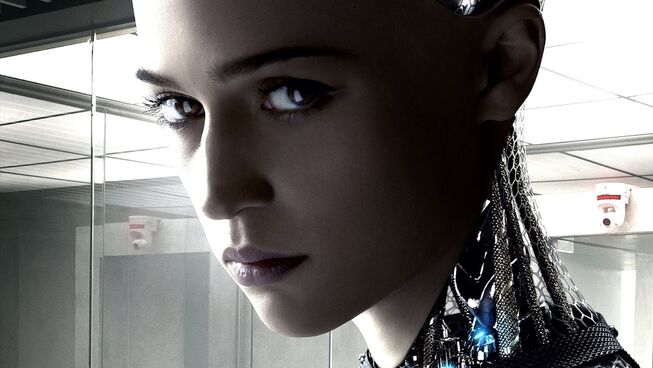
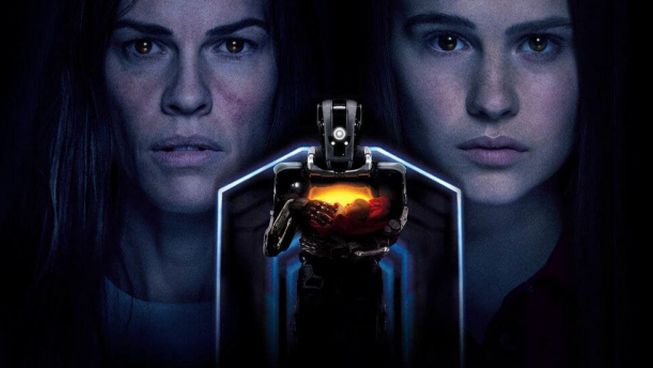
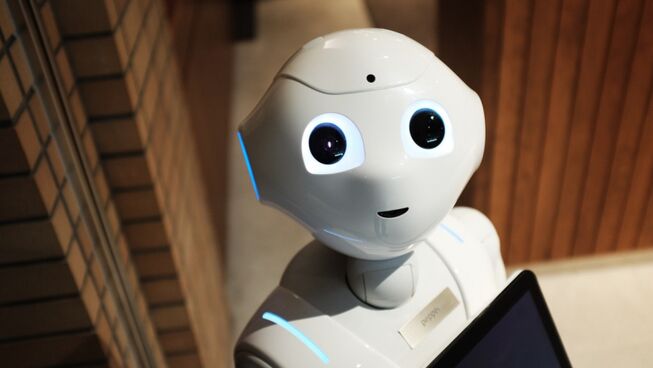
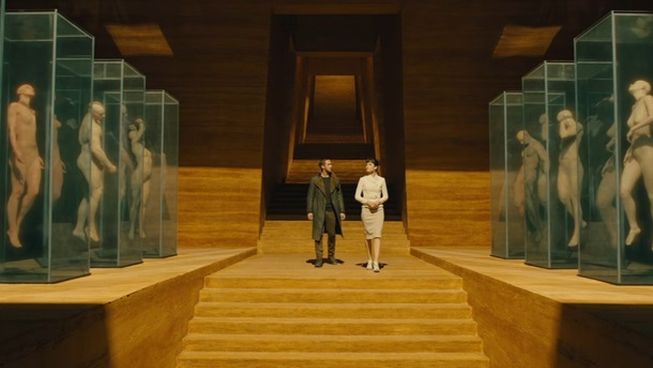


I agree that there was a treasure trove of interesting themes in this movie, perhaps too many to develop fully, but the seeds were certainly planted. It exceeded my expectations on that front.
I think the choice of characters and the acting is probably what has proved the most divisive aspect of the film which has divided critics the most. I actually didn't mind them, I found there was a zany edge there which was something different to what we've seen before, and the film was more energetic and colorful than I predicted. There are some very intense and violent scenes, but I felt there was ultimately moral objectivity rather than moral nihilism at the heart of the storyline. Like District 9, the film asks us to consider whether morality transcends our own species. And it contains reflections on parenthood, what it means to be an 'embodied' soul, and it even takes a stab at the idea of resurrection from the dead.
From a strictly technical point of view, the film absolutely nails what it looks like to work for a real life defence/aerospace SME. From the slightly depressing cubes to the naff lanyards and swipe cards, to the slightly crusty factory shop floor, the CAD and schematic screenshots, whoever did the set design absolutely knew their stuff. I can fully vouch for that!